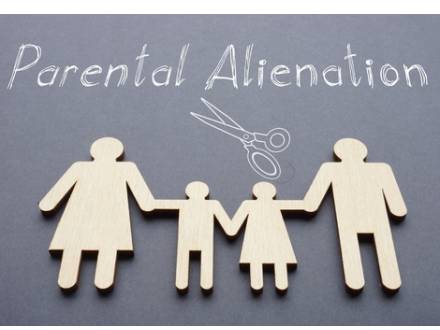Parental Alienation vs. Justified Estrangement
 Divorce can be a traumatic experience – both for the spouses divorcing and the children. If arguments and negotiations failed when determining the allocation of parental responsibilities, then a judge may have made the final determinations regarding which parent would be designated as the primary residential parent and which would have parenting time. After all the time and discussions, it can be disheartening for one parent to be rejected by his or her child.
Divorce can be a traumatic experience – both for the spouses divorcing and the children. If arguments and negotiations failed when determining the allocation of parental responsibilities, then a judge may have made the final determinations regarding which parent would be designated as the primary residential parent and which would have parenting time. After all the time and discussions, it can be disheartening for one parent to be rejected by his or her child.
Although parental alienation is a serious threat – and one that is talked about much more frequently – in some cases, the issue is justified rejection and estrangement rather than parental alienation. When a child has a legitimate reason to reject a parent, it is known as justified rejection and estrangement. If your child no longer wants to spend time with you during your court-ordered parenting time, it is important that you determine whether parental alienation or justified estrangement is at hand.
It can be tough to admit that your child has a legitimate reason to avoid seeing you, and it can be equally difficult to find that your ex is engaging in parental alienation. One of these involves looking at your own behavior, while the other involves getting the court involved to stop parental alienation. If your child no longer wants to visit you during your designated parenting time, it is a good idea to speak to a knowledgeable Geneva, IL family law attorney from Serrano Hanson & Hurtado, LLC.
How Do Courts Determine Whether Parental Alienation is Present?
When a child has an extreme – and seemingly inexplicable – rejection of one parent, this is known as parental alienation. Parental alienation occurs when a child rejects one parent with no legitimate justification, often using the alienating parent’s language. The parent involved in the alienation may use these tactics to gain an edge during the allocation of parental responsibilities or to gain favor with a child to "settle a score." Parental alienation may involve the following:
- The child perceives one parent as "good" and the other as "bad."
- The child uses the alienating parent’s language verbatim.
- When the child is asked why he or she has a problem with the other parent, the explanations do not make sense.
- The relationship between the child and the other parent changed suddenly.
- The child "sides" with the alienating parent regardless of reason or logic.
- The child does not appear to feel guilty about his or her continued alienation and denigration of the other parent.
Parental alienation is a form of emotional child abuse that can have a devastating impact on the child’s life. Children who have been alienated from one parent often suffer a lowered self-image, along with an impaired ability to establish and maintain future relationships.
At some point, the child is likely to suffer guilt, anxiety, and depression over his or her role in destroying the relationship with a previously loved parent. When one parent uses parental alienation in the hopes of alienating the child against the other parent, it is the same as teaching the child to hate and requires the intervention of a family court.
What is Justified Estrangement?
If a child is pulling away from one parent when the other is not engaging in parental alienation tactics, then there may be justifiable reasons for the estrangement. These may include:
- Prior instances of domestic violence or abuse toward the child or the child’s other parent.
- Personality differences that cause frequent arguments between the child and one parent.
- Chronic immature or damaging behavior on the part of the estranged parent toward the child or the other parent.
Healing parental estrangement often requires therapy on the part of the estranged parent and perhaps family therapy with the child.
Contact a Kane County, IL Allocation of Parental Responsibilities Lawyer
If you believe your child is being alienated from you by the other parent, you should speak to an experienced Geneva, IL allocation of parental responsibilities lawyer. The court does not take parental alienation lightly and will immediately address the issue. If your child does not want to see you for other reasons, it could be time to reflect on your own issues. Our attorneys are fluent in both Spanish and English; contact Serrano Hanson & Hurtado, LLC at 630-844-8781 to schedule a consultation.


 630-844-8781
630-844-8781



